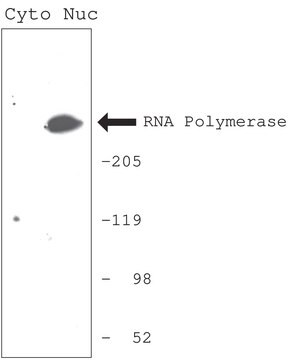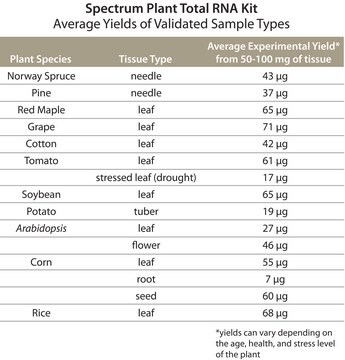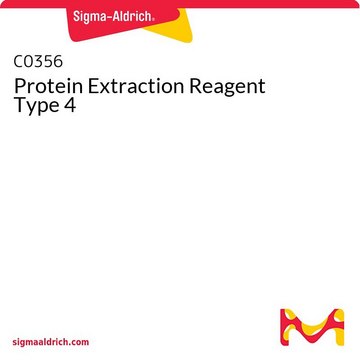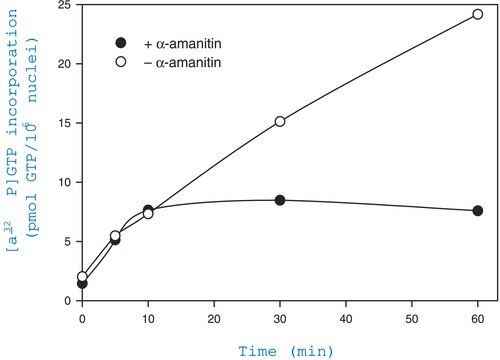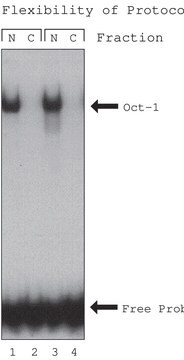PE0240
Plant Fractionated Protein Extraction Kit
Suitable for any plant species or tissue
About This Item
Produtos recomendados
uso
sufficient for 20 extractions
temperatura de armazenamento
−20°C
Descrição geral
Following removal of polyphenolics, tannins and other interfering substances, ground plant tissue, fresh or frozen, is resuspended in a specially formulated reagent to extract hydrophilic proteins. After sequential extractions of hydrophilic proteins, addition of the chaotropic reagent provided extracts hydrophobic membrane bound proteins. Plant debris is pelleted by centrifugation and protein extract solutions are collected. The end results are qualitative fractionated protein samples, ready for downstream proteomic analysis.
Componentes do kit também disponíveis separadamente
- Plant Protein Extraction Reagent Type 1 1 bottle
- C0356Protein Extraction Reagent Type 4 1 bottleSDS
- P9599Protease Inhibitor Cocktail, for plant cell and tissue extracts, DMSO solution 3 x 1SDS
- T7567Tributylphosphine solution, 200 mM (in N-methyl-2-pyrrolidinone), liquid 3 x 0.5SDS
- A3221Iodoacetamide, Single use vial of 56 mg 3 vial(s)SDS
Palavra indicadora
Danger
Frases de perigo
Declarações de precaução
Classificações de perigo
Acute Tox. 3 Oral - Aquatic Chronic 2 - Carc. 2 - Eye Dam. 1 - Repr. 1B - Resp. Sens. 1 - Skin Corr. 1A - Skin Sens. 1 - STOT SE 3
Órgãos-alvo
Respiratory system
Código de classe de armazenamento
6.1C - Combustible acute toxic Cat.3 / toxic compounds or compounds which causing chronic effects
Certificados de análise (COA)
Busque Certificados de análise (COA) digitando o Número do Lote do produto. Os números de lote e remessa podem ser encontrados no rótulo de um produto após a palavra “Lot” ou “Batch”.
Já possui este produto?
Encontre a documentação dos produtos que você adquiriu recentemente na biblioteca de documentos.
Os clientes também visualizaram
Nossa equipe de cientistas tem experiência em todas as áreas de pesquisa, incluindo Life Sciences, ciência de materiais, síntese química, cromatografia, química analítica e muitas outras.
Entre em contato com a assistência técnica
